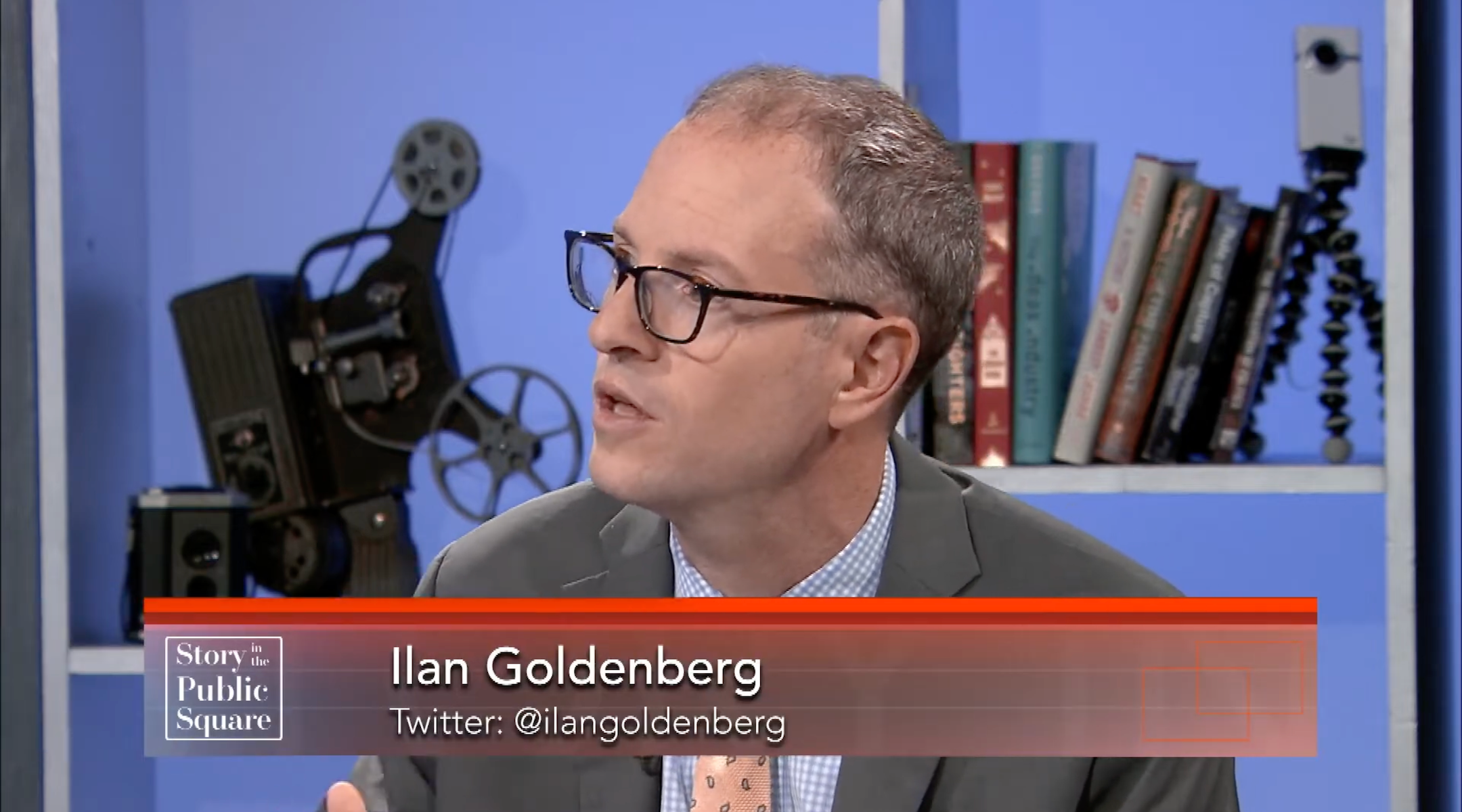Harris campaign taps Israeli-born former peace negotiator Ilan Goldenberg as liaison to Jewish community
Goldenberg has spent decades working on Middle East affairs, both in government roles and at think tanks

Ilan Goldenberg, pictured in 2019. (Screenshot)
(JTA) — Kamala Harris’ presidential campaign has named Ilan Goldenberg, an Israeli-born former peace negotiator, as its liaison to the Jewish community, sources say.
Three people with close ties to the organized Jewish community and the Harris campaign confirmed the pick to the Jewish Telegraphic Agency. The campaign did not return a request for comment.
Goldenberg, who has served as Vice President Kamala Harris’ adviser on Middle East issues, has previously been an acerbic critic of both Israeli Prime Minister Benjamin Netanyahu and the Palestinian leadership. He formed close ties with the organized Jewish community during the failed 2013-2014 Israeli-Palestinian peace talks, when he was a lead on the Obama administration’s negotiating team.
The pick comes as Harris refines her approach to discussing Israel on the campaign trail at a time when the Israel-Hamas war elevates the issue’s prominence. While Harris has expressed unwavering support for Israel, she has also been more critical than Biden of its military campaign in Gaza.
The Jewish liaison is the campaign’s representative to Jewish communities, answering questions about the candidate’s policies on Israel and other issues of Jewish concern and otherwise taking the lead in making the campaign’s case to Jewish voters, including by organizing events in Jewish communities.
Goldenberg, 47, was born in Jerusalem and grew up in New Jersey, where he attended Jewish day school and belonged with his family to a Conservative synagogue. He is a graduate of the University of Pennsylvania and Columbia University and is fluent in Hebrew and Arabic. He’s spent decades working on Middle East affairs, both in government roles and at think tanks.
He renounced his Israeli citizenship to work in the U.S. government and worked on the Iran file at the Pentagon in President Barack Obama’s first term before switching to the peace process at the State Department in Obama’s second term. In 2020, before returning to government under the Biden administration, he advised Sen. Elizabeth Warren’s presidential campaign.
After the failed talks in 2014, which were followed closely by a war in Gaza, Goldenberg authored a 22-page analysis indicting fundamental distrust between Netanyahu and Mahmoud Abbas, then as now the Palestinian Authority president, as the chief cause of the collapse. “These guys can never do it together,” he told JTA at the time. “That’s for sure.”
After his time on the negotiating team, Goldenberg worked at the Center for a New American Security and was an advisor at the Israel Policy Forum, both of which support the establishment of a Palestinian state alongside Israel. He was highly critical of the Trump administration’s Israel policy and, in 2018 and 2019, wrote essays urging more of a focus on diplomacy in Gaza to prevent an escalation of violence there. He also wrote an essay in 2019 imagining how a war with Iran would play out.
In a 2018 Haaretz essay titled “Will Israel Be Forced to Invade and Reoccupy Gaza?” Goldenberg wrote that the cycle of conflicts between Hamas and Israel could explode if regional players did not take steps to dial down tensions.
“With every crisis, the humanitarian situation in Gaza worsens. There will come a moment when basic order collapses altogether, or Israel is forced to invade and retake Gaza,” he wrote. “The only way to avoid this terrible outcome in the long-term is a sustainable political arrangement that should include both a long-term ceasefire between Israel and Hamas that includes major economic opening of Gaza combined with a Palestinian reconciliation deal between Fatah and Hamas that slowly brings the Palestinian Authority back into Gaza.”
Goldenberg also wrote an essay in 2019 about donating a kidney to his father.
A message from our Publisher & CEO Rachel Fishman Feddersen

I hope you appreciated this article. Before you go, I’d like to ask you to please support the Forward’s award-winning, nonprofit journalism so that we can be prepared for whatever news 2025 brings.
At a time when other newsrooms are closing or cutting back, the Forward has removed its paywall and invested additional resources to report on the ground from Israel and around the U.S. on the impact of the war, rising antisemitism and polarized discourse.
Readers like you make it all possible. Support our work by becoming a Forward Member and connect with our journalism and your community.
— Rachel Fishman Feddersen, Publisher and CEO


























